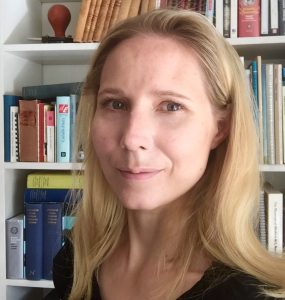Matilda Hellman is taking over the lead of the CEACG-group starting August. Hellman has served as the group’s vice director since its formation in the beginning of 2011.
─ The group is unique seen in the Finnish, Nordic and international context. There is really no research center that studies control and governance-aspects of lifestyle-related behavior and policies in the ways that the CEACG-group does, explains Hellman.
Hellman, who has a funding track record that exceeds 2 million euros, has just finished a five year engagement in the large scale FP7 EU project Addictions and lifestyles in contemporary Europe, ALICE RAP:
─ It was an interesting and great opportunity to be part of the lead of such a big heterogeneous European project, says Hellman.
While the cross-disciplinary cooperation was familiar territory from previous engagements, the management of so many different areas of research was a true challenge:
─ Social and cultural approaches are globally speaking weak in this area of research. Medicine, psy-sciences and certain public health approaches dictate the conditions of our modus operandi. As social scientists we need to remain critical and independent. Our integrity may be more important than we even comprehend at the moment, maintains Hellman
What’s new at the CEACC?
Asked to mention some trends that are currently reshaping the area of lifestyles and addictions Hellman first refers to ‘a great bundle of circumstances related to globalization’, such as a global industry, global governance initiatives, but also new media and technology-related trends. Second, she sees that an increased emphasis is given to the brain disease model and that it is sometimes tightly synchronized with psy models which further distance the problem understanding from social and cultural contexts. Third, she sees new views – or more specifically lack of views – on the connection between lifestyle governance and welfare state accountability as a worrying development that the social sciences urgently need to address.
Starting 2016 the CEACG has a new cooperation contract with the National Institute for Welfare and Health (THL). CEACG will cooperate closely especially with the gambling researchers at the THL, starting with investigations into the 2017 transition to a Finnish gambling monopoly system.
─ The monopoly will become one of the largest gambling operators in Europe, and we are among other things interested in the impact of this reorganization on gambling habits and harm. Another interesting aspect is that the three Finnish gambling companies that are now being merged into the monopoly system have played a specific and important role in Finnish society. We are looking into whether this will change and in what ways. This might have consequences for the non-governmental civil sector which is heavily economically dependent on gambling revenues, explains Hellman.
The CEACG is also actively looking for new members.
─ While our economy is a constant puzzle, we can at least offer a great everyday work environment for our researchers. Over the years we have become a tight yet inclusive group with much experience of the ups and downs of academic life. Pekka Sulkunen has had extraordinary skills in seeing cooperation possibilities across thematic and geographic borders, says Hellman.
Although her appointment begins on the first of August, Hellman will also continue her engagement as university lecturer in sociology at the University of Tampere until the end of 2016:
─ For me it was a rare opportunity to be part of the Tampere environment as it differs a bit from the one in Helsinki. In Tampere there is also an addiction research network coordinated by Katja Kuusisto and Atte Oksanen. I see a lot of cooperation possibilities between the two universities that need to be explored.
Read Matilda Hellman’s text on the CEACG groups research in the festschrift in honor of Pekka Sulkunen: “The sociology of lifestyle governance: A research field”.

